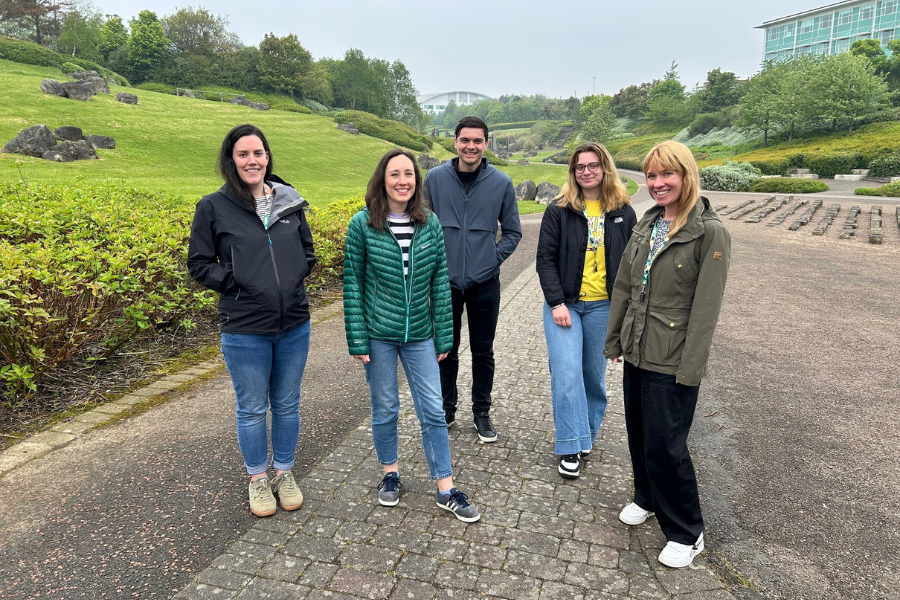
Growing the economy is the government’s top priority. There are lots of drivers to doing this, but an under-explored aspect is the health of workers: an unhealthy workforce is an unproductive workforce.
It’s clear that there are problems faced in this regard across the UK, and in the North East in particular. It’s also clear how powerful physical activity is in turning around these fortunes.
Current and future workers are in poor health
Healthy life expectancy (the average number of years that a person can expect to live in “full health”) for men in the North East Combined Authority area is 57.3 years, while the England average is 61.5 years. With the State Pension age moving to 68 years for those born after 1978, this means that if things stay the same, we’ll be asking some of the workforce to remain in work with ill-health for more than 10 years.
This is a huge challenge.
Long-term sickness accounts for 35% of economic inactivity in the North East, compared to 27% in the rest of England (OHID data). The two most common reasons for long-term sickness locally are musculoskeletal (MSK) issues and poor mental health. Both of these can be improved by moving more.
What about the workers of the future? In 2024, nearly 4 in 10 (38.6%) of children in Year 6 in the North East were classed as overweight or obese. Recent data, from the National Child Measurement Programme, shows that there are 8 wards in North Tyneside where 40% or more children in Year 6 are overweight or obese,
This cohort will be joining the workforce inside the next 10 years and may well come into it in ill-health linked to weight-related issues (for example, type 2 diabetes). Acting now to alleviate these problems and build healthy habits to last a lifetime will pay dividends.
Improving physical activity helps communities, the economy, now and in future
Activity and movement have profound benefits for our physical health and mental wellbeing. They connect and strengthen communities. They boost the region’s economy through supporting a healthier workforce.
There are positive signs that these benefits are being realised. Sport England’s latest report shows that record numbers of people are playing sport and taking part in physical activity. This is fantastic news, but there are regional and demographic differences.
Currently, 28% of all adults in County Durham, Northumberland and Tyne & Wear are physically active for less than 30 minutes per week (SE Active Lives Data Nov 2023-Nov 2024). There are slightly different trends seen in different local authorities since 2015, with Northumberland, South Tyneside and Sunderland seeing physical inactivity fall and County Durham, Gateshead, Newcastle and North Tyneside seeing it rise. Inactivity rates are currently higher in County Durham and Tyne & Wear than in England, but lower in Northumberland that in England.
And within these inactivity numbers, there is an over-representation of people from lower socio-economic backgrounds, those from ethnically diverse backgrounds, and those with a disability or long-term health condition. We must shift the dial on this percentage if we are going to increase the local employment rate and improve economic growth.
Targeted support for all ages
CV writing and skills development will only take a person so far if they aren’t physically or mentally fit enough to engage with these support services or to get and maintain a job.
If we want a healthier workforce, we must support people to be more physically active. Simply telling people to move isn’t enough. GPs, work coaches, employers and others must consider their role in enabling and supporting physical activity and movement – and be supported in doing so themselves.
We can help. Based on decades of experience, Rise Workplace Wellbeing will guide you through creating a healthier, happier workforce. It’s one of the ways to bring down the number of days lost through sickness absence, which stands at roughly 1 week per worker in the North East.
And to futureproof, as a society we can invest in tomorrow’s workforce, for example through improving access to sports, games and play.
We all have a role here. What changes will you commit to?
Find out more
- Rise Workplace Wellbeing: https://www.riseworkplacewellbeing.co.uk/
- Our children and young people work: https://www.risenortheast.co.uk/work/category/children-and-young-people/
Can you help us?
Following us on social media and sharing our posts and emails helps us reach more people who need our support.
Find us on Facebook, Instagram, LinkedIn and YouTube. Sign up to our newsletter.